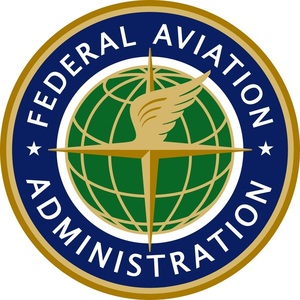FAA offers $245 million in SAF infrastructure funding

November 28, 2023
BY Erin Voegele
The Federal Aviation Administration on Sept. 25 launched a new competitive grant program that, in part, can support projects to add sustainable aviation fuel (SAF) production capacity to existing renewable diesel and ethanol plants.
The newly launched $300 million funding opportunity aims to support projects to reduce carbon pollution from aviation. Approximately $245 million of that funding will support sustainable aviation fuel (SAF) infrastructure projects, with $47 million allocated to support low-emission aviation technology projects.
The funding is being offered through the Fueling Aviation’s Sustainable Transition program, which was established by the Inflation Reduction Act. The $245 million in available FAST-SAF grants will focus on producing, transporting and blending SAF with the goal of building up regional SAF supply chains and increasing SAF use. The $47 million in available FAST-TECH grants will accelerate aviation technology projects that reduce greenhouse gas (GHG) emissions, improve airport fuel efficiency, and increase the usage of SAF.
Eligible entities for the program are broad, including airports, air carriers, universities, aviation and aerospace companies, state and local governments and nonprofit organizations. The FAA opened a public comment period related to the the FAST-SAF and FAST-TECH program earlier this year.
Advertisement
Advertisement
FAS-SAF grants can support a wide range of projects related to SAF production, SAF transportation, SAF blending and SAF storage. Funding opportunity documents published by the FAA specifically note that FAST-SAF funds can be used to support projects to upgrade existing fuel production facilities to produce SAF; add equipment to existing renewable diesel plants to enable SAF production; and install conversion equipment at ethanol plants to produce SAF via an alcohol-to-jet pathway.
Applications for the FAST-SAF and FAST-TECH programs are due Nov. 27. Additional information is available on the FAA website.
Advertisement
Advertisement
Related Stories
Bangkok Airways Public Company Limited has officially announced the adoption of sustainable aviation fuel (SAF) on its commercial flights, reinforcing Thailand’s green aviation industry. The initiative took effect starting July 1, 2025.
Avalon Energy Group LLC and Sulzer Chemtech have signed a strategic alliance and partnership agreement to scale up the production of SAF. Under the agreement, Avalon has selected BioFlux technology for its portfolio of SAF projects.
The USDA has announced it will delay opening the first quarterly grant application window for FY 2026 REAP funding. The agency cited both an application backlog and the need to disincentivize solar projects as reasons for the delay.
Neste and DHL Express have strengthened their collaboration with the supply of 7,400 tons (9.5 million liters) of neat, i.e. unblended, Neste MY Sustainable Aviation Fuel to DHL Express at Singapore Changi Airport starting July 2025.
CoBank’s latest quarterly research report, released July 10, highlights current uncertainty around the implementation of three biofuel policies, RFS RVOs, small refinery exemptions (SREs) and the 45Z clean fuels production tax credit.
Upcoming Events










